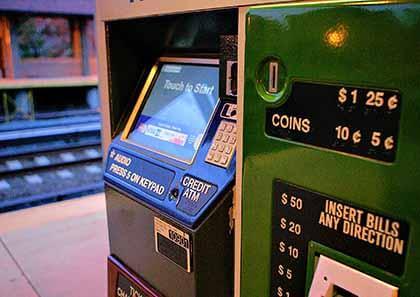By Philip Newman
Without new sources of money, New York City straphangers will face even more cutbacks in bus and subway service, a new report warns.
The Drum Major Institute for Public Policy, a nonpartisan think tank, suggested the solution could be “road-charging — be it congestion pricing, East and Harlem river bridge tolls.”
“These would bring greater fairness to the city and the region’s transit networks,” the institute said.
But whatever happens, the Metropolitan Transportation Authority’s recent service cuts and fare hikes will do little to make a dent in the MTA’s massive debt, the report said.
“The MTA faces a $900 million gap in its operating budget in 2011 and a $2.1 billion deficit by 2014,” it said.
The institute pointed out that the MTA has a debt loan of $31 billion in debt, more than twice the transportation agency’s annual budget.
“Without new sources of revenue, riders face more severe service cuts and fare hikes in the future,” the institute said. “As a result, drivers will face increased congestion as straphangers abandon the transit system and drive instead.”
The Drum Major Institute proposed five steps the candidates for governor should take to carry out reforms in Albany and benefit the city’s daily commuters.
1. Return the $160 million taken from the MTA over the last year by the Legislature and prevent legislators from using dedicated transit funds for other purposes.
2. End the fiscally irresponsible reliance on debt by restoring the state’s contribution to the MTA Capital Program.
3. Protect millions of straphangers from threats to repeal the mobility tax, which would result in yearly MTA budget deficits of more than $1 billion. The mobility payroll tax is collected in the 12 counties serviced by the MTA.
4. Create sustainable sources of transit revenue funded by everyone who benefits from transit, including transit riders, drivers and businesses.
5. Urge New York’s congressional delegation to secure higher levels of federal funding that would help expand public transit service access to underserved areas.
“One-quarter of New York state’s workforce relies on mass transit to get to work and the MTA provides 8.5 million rides every workday, enough to transport the population of Connecticut to work and back daily,” the report said.
It said the state has not contributed any funds directly to the MTA Capital Program since December, which is “a major factor” in the agency’s financial woes.
The MTA’s debt is also the result of borrowing $24 billion, resulting in prodigious interest coming due soon.
The Drum Major Institute said it is committed to “generating ideas that fuel the progressive movement.”
Reach contributing writer Philip Newman by e-mail at timesledgernews@cnglocal.com or phone at 718-260-4536.

































